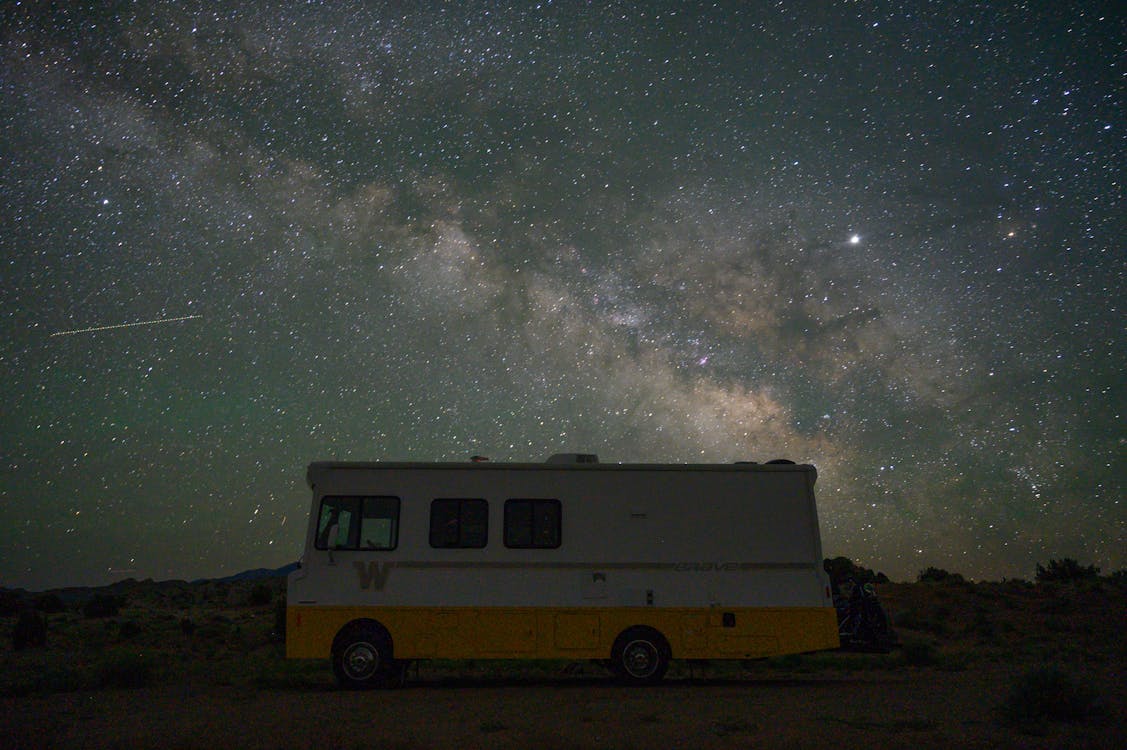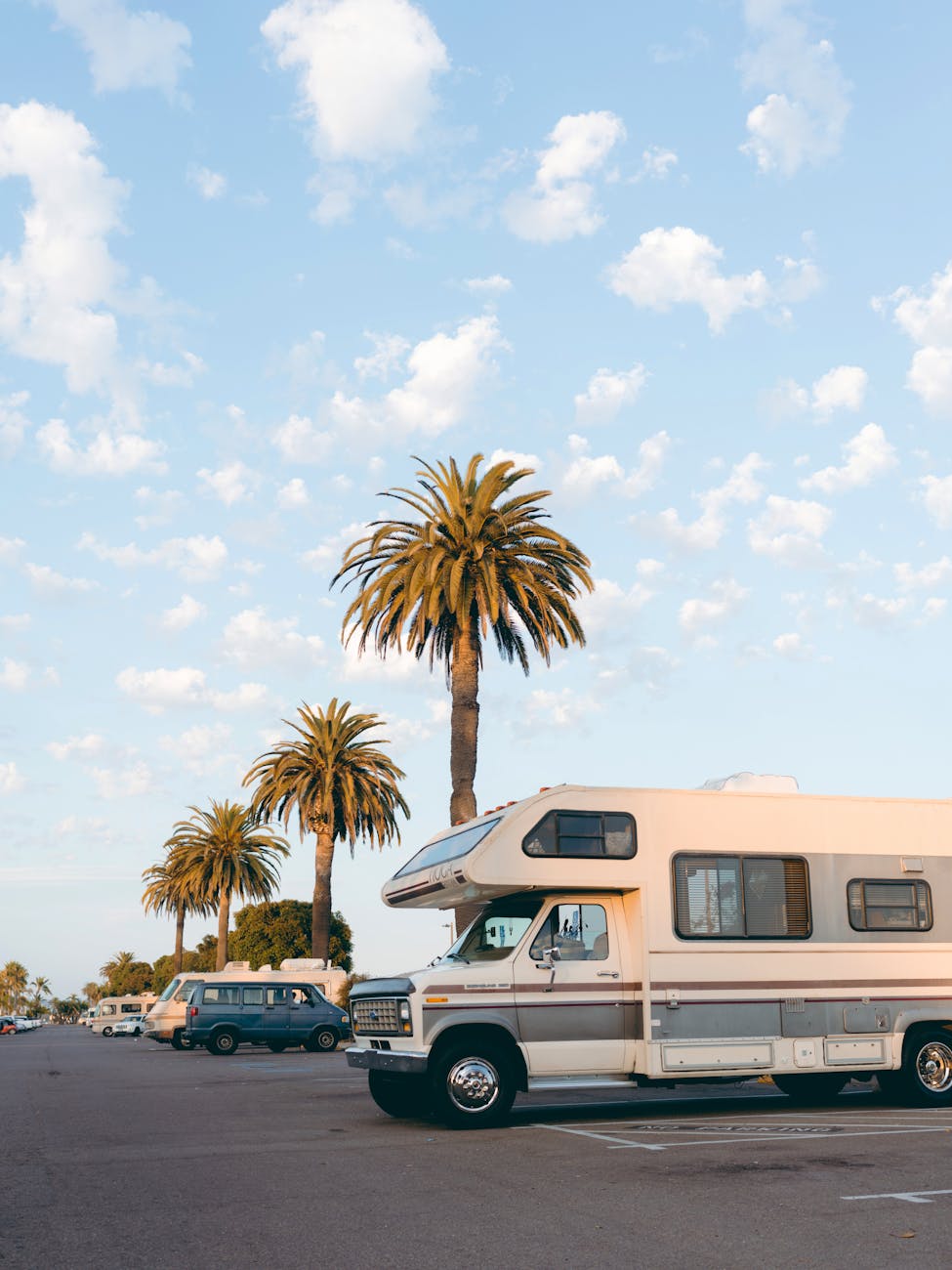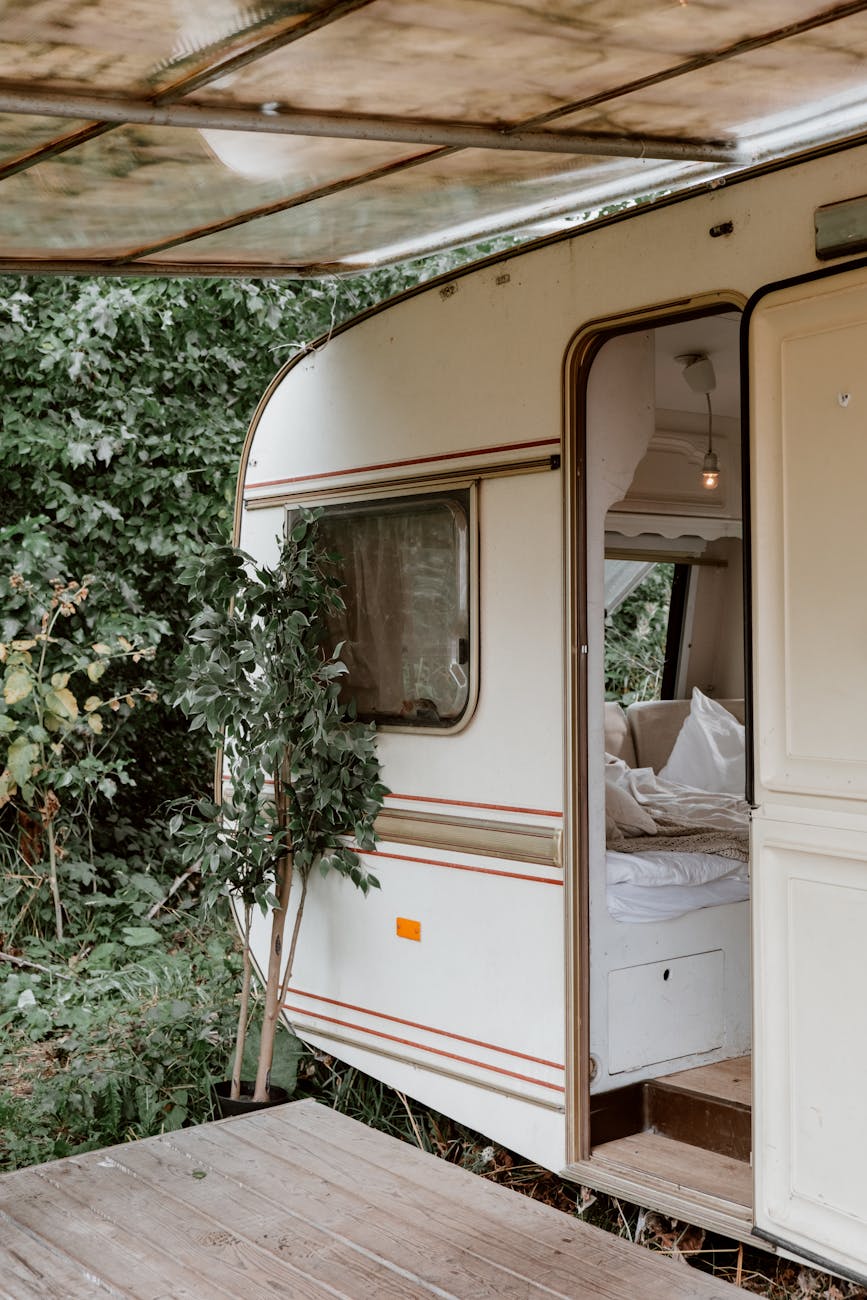How to Prepare Your Camper For Winter
How to Prepare Your Camper for Winter

Winter is coming, and it's going to be cold. A good time to store your RV until the temperature warms up again in the spring is when the fall foliage starts to turn brown and fall to the ground. RV Care, a network of RV dealers, recommends prepping your RV before storing it for the winter to protect your investment, says Art JD's Mobile RV Repair, the parts programs manager.
When it's time to put your RV away for the winter and the temperature is predicted to drop to or below 32 degrees Fahrenheit for a period of 24 hours or longer, follow JD's Mobile RV Repair's advice and conduct these pre-storage procedures to make sure it's ready to hit the road again come spring.

BLOW OUT THE FLUID SYSTEM
According to JD's Mobile RV Repair, it just might be the most important step in winterizing your RV. Damage that may be costly to repair, according to JD's Mobile RV Repair, might occur if there is any water left in the plumbing system. This can freeze, destroying pipes, the plumbing system, inlets, as well as faucets, toilets, and showerheads.
Winterizing your RV's plumbing system may be a do-it-yourself project depending on the complexity of the system, he says. The fresh and waste water tanks must be drained, the pipes drained, and nontoxic RV antifreeze pumped through the entire water system. According to Mike's Mobile RV Repair, nontoxic RV antifreeze removes water from your plumbing system. Draining the water system should also be included in your owner's manual.
To avoid the time and hassle of doing it yourself, a skilled professional at a well-known repair center may perform this job for a fee instead.
2. DEVELOP THE OUTSIDE APPEARANCE.
There are service centers that can also perform an extensive assessment of the exterior of the home and seal or re-caulk any holes or cracks that may have appeared. You'll be able to avoid pricey repairs in the spring if you keep water out of areas where it shouldn't be.
Consult your RV dealer before re-sealing any holes or cracks. Selecting the correct sealant for your RV and climate is critical, JD's Mobile RV Repair advises The improper sealant could leave your RV vulnerable to water damage if it doesn't set properly. Re-sealing your RV, along with draining the water system, may be easier for you if you hire a skilled professional.
It is important to select a location that is both safe and convenient.
According to Mike's Mobile RV Repair, the best place to store an RV over the winter is under a covered structure. "However, for some RV owners, that's just not practical," he adds. Try to select a place that isn't exposed to the wind, and park the RV far enough away from any trees that could fall during a wind or ice storm.
If you plan to park your RV on the street for the winter, be sure to verify your city's parking regulations first. According to the Family Motor Coach Association, parking restrictions for motorhomes differ from city to city.

COVER UP YOUR RV!
To protect your RV from the elements, JD's Mobile RV Repair recommends purchasing a cover specifically designed for RVs. The UV rays can damage the paint finish if exposed for an extended period of time without the cover. Protecting your vehicle from wind damage, tree sap, and bird droppings is also a benefit of this product.
In order to keep the RV dry, "don't use a plastic tarp," he warns. When the wind picks up, it is possible for a tarp to fly around and scuff up outside surfaces. Instead, JD's Mobile RV Repair recommends investing in a cover customized to your RV's unique needs and climate. According to Family Motor Coaching magazine, RV coverings, whether universal or custom-designed, feature a system of straps to keep your RV tightly wrapped. For those times when you need to get into your RV, there are zippered openings.
In JD's Mobile RV Repair's words, "follow the manufacturer's directions for putting the cover on" As the saying goes, "be sure it's tight enough to keep out moisture and wind."
5. GUARD YOUR TIRES.
It is possible that tires may be damaged by UV rays from the sun. Protect your RV's tires by purchasing tire covers from your local RV dealership. It's important to remember, as JD's Mobile RV Repair points out, that not all RV body covers also cover the tires. Properly fitting tire covers will likely keep the tires safe all winter long
The Family Motor Coaching magazine recommends that all tires be inflated to their recommended levels before to storing them for the winter. To ensure that your RV's tires are properly inflated before you take it out on the road again, check the tires and re-inflate them.
6. Keep an eye out for dead batteries.
KOA.com recommends disconnecting the batteries and storing them in a cool, but not freezing, location. Temperature-controlled storage decreases the loss of battery charge. Using a voltmeter or multimeter to check the charge every four to six weeks and charging the batteries as needed to maintain them charged is what JD's Mobile RV Repair suggests. These considerations are critical because the battery may freeze faster when it's not fully charged. It is possible for the batteries to be damaged or even destroyed by freezing.
8. Incorporate FUEL STABILIZER
This newspaper reports that gas can go bad over time, leaving sticky resin deposits. According to JD's Mobile RV Repair, such deposits are generated by oxidation, which might cause engine damage. As a result, RoadandTrack.com recommends using a gasoline stabilizer, which prevents deposits from accumulating.
KOA.com suggests adding the stabilizer first, then the gas, following the manufacturer's instructions on the package. The stabilizer must be allowed to circulate through the entire fuel system for a period of time specified on the bottle (often 5-10 minutes). Once this time has passed, turn on both the engine and generator. Before storing, KOA.com recommends that the engine and generator's oil and oil filter be replaced because acids in used oil can cause corrosion in the storage unit.
AVOID CRITTER CONTAMINATION
According to the Family Motor Coach Association, mice and squirrels prefer wintering in RVs, where they may eat through wiring, plastic, and rubber components. Removing all sources of attraction will deter rodents. Clean the refrigerator, freezer, cabinets, counters, and floors thoroughly before restocking with food, says JD's Mobile RV Repair.
According to KOA, you should think about putting mouse and ant traps in and around your RV. In addition, keep an eye out for places where rodents could get in. The underbelly of your RV can be inspected by your RV dealer or service provider, and any holes or cracks can be sealed. To get into the RV, rats will run up and climb through the wall next to the auxiliary electrical power wire, he says. As a result, unplug the cord, disconnect from the RV, and secure the cable hatch.

VERIFY THE CONDITION OF YOUR RETAINED RV
JD's Mobile RV Repair advises that you perform a quick inspection of your parked RV every few weeks if you can. "Consider any outside damage, water penetration, or odors within," he says. "If you see any issues with your RV, don't wait until spring to get it fixed; the damage will only become worse."
If you find yourself in Rock Hill, SC or in Charlotte, NC traveling with an RV or a camper trailer, definitely keep our pick for the best camper repair service in mind. We believe JD's Mobile RV Service located in Rock Hill is the best pick if you have an emergency and need immediate help.
Check them out at:
JDs Mobile RV Service LLC
SC-122, Rock Hill, SC 29730
803-784-8134
https://jds-mobile-rv-service-llc-rv-repair-shop.business.site

